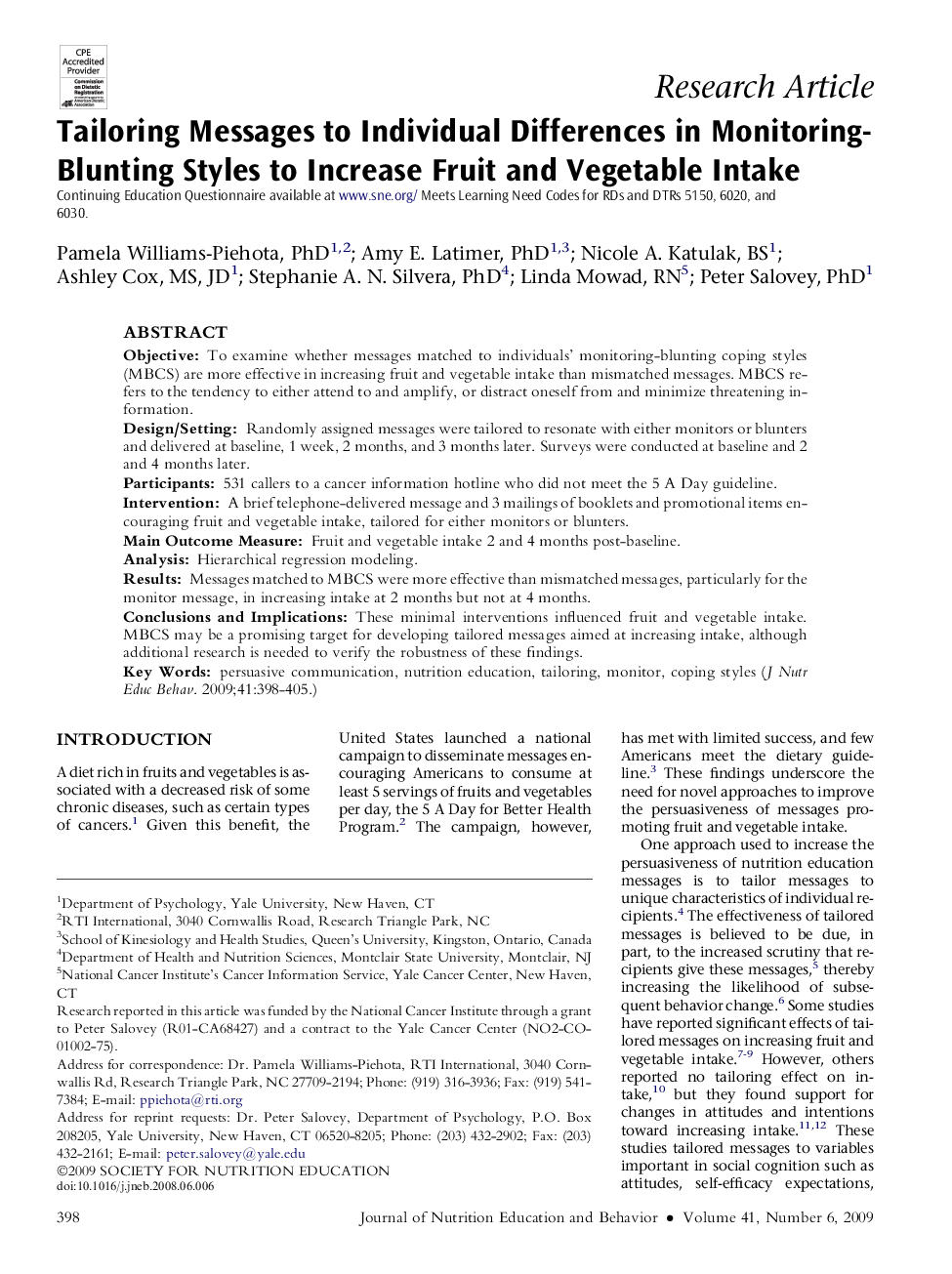| Article ID | Journal | Published Year | Pages | File Type |
|---|---|---|---|---|
| 363090 | Journal of Nutrition Education and Behavior | 2009 | 8 Pages |
ObjectiveTo examine whether messages matched to individuals' monitoring-blunting coping styles (MBCS) are more effective in increasing fruit and vegetable intake than mismatched messages. MBCS refers to the tendency to either attend to and amplify, or distract oneself from and minimize threatening information.Design/SettingRandomly assigned messages were tailored to resonate with either monitors or blunters and delivered at baseline, 1 week, 2 months, and 3 months later. Surveys were conducted at baseline and 2 and 4 months later.Participants531 callers to a cancer information hotline who did not meet the 5 A Day guideline.InterventionA brief telephone-delivered message and 3 mailings of booklets and promotional items encouraging fruit and vegetable intake, tailored for either monitors or blunters.Main Outcome MeasureFruit and vegetable intake 2 and 4 months post-baseline.AnalysisHierarchical regression modeling.ResultsMessages matched to MBCS were more effective than mismatched messages, particularly for the monitor message, in increasing intake at 2 months but not at 4 months.Conclusions and ImplicationsThese minimal interventions influenced fruit and vegetable intake. MBCS may be a promising target for developing tailored messages aimed at increasing intake, although additional research is needed to verify the robustness of these findings.
